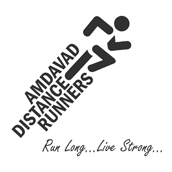HYDRATION & NUTRITON GUIDLEINES FOR RUNNING
| FOR RUNS LESS THAN 1 HOUR | FOR RUNS BETWEEN 1 – 3 HOURS | FOR RUN MORE THAN 3 HOURS | |
|---|---|---|---|
| Pre |
|
30 Mins before: (one of the below options)
|
45 Mins before: (one of the below options) |
| During |
|
|
|
| Post |
|
|
|
Remarks
- Caffeine – allowable recommended dosage is 3-6 mg/Kg Body weight. Preferable mode of consuming caffeine during run is via gels. Start with low dose, once body starts accepting it gradually can increase within range and stay hydrated while its consumption.
- Avoid running on plain water as water does not contain electrolytes. Water will dilute the sodium levels resulting to cramps/bloating/hyponatremia.
- Avoid running with no hydration and nutrition. Train your mind to consume it or else it will deplete the nutrition store. To perform well you need periodic replenishment.
- Avoid taking Protein before run, or else it will convert to carb and excess will convert to fat. It is preferred more as a recovery meal post run.
Disclaimer
Kindly note the above recommendations are general guidelines. Individual need’s, goal and medical history being different, the above recommendations may vary and would need a customized approach.

Nutrition Recommendations by:
Shaily Chauhan
Nutritionist
Co-Founder: Shivali & Shaily Nutrition Coach
Contact: 9904103807
A relevant extract is reproduced below:
Training issues for distance events
A demanding endurance training programme usually involves daily or twice daily workouts. Inadequate refuelling leads to fatigue and ineffective training. Low body fat levels may benefit performance, and are pursued obsessively by some distance runners and walkers. Severe restriction of energy intake and dietary variety can lead to fatigue, nutritional deficiencies, hormonal imbalances and disordered eating. Lengthy, high intensity workouts lead to high sweat losses, particularly in hot weather. Requirements for protein, vitamins and minerals may also be increased by a heavy training load.
Competition issues for distance events
The main factors causing fatigue during competition are fuel (carbohydrate) depletion and dehydration. Strategies for eating before, during and after the event are important to reduce these effects. Competition is often undertaken in multiple stages, or as a series of heats and finals. Recovery between sessions can be important in determining the final winner.Eating strategies for the distance runner or walker When carbohydrate intake targets are high, meals and snacks should be based around nutritious carbohydrate-rich foods such as breads, rice, pasta, noodles and other grain foods, fruits and starchy vegetables, legumes, and flavoured dairy foods. The addition of protein-rich foods and vegetables to meals will help to balance fuel needs and other nutrition goals. Sugary foods and drinks provide a compact form of carbohydrate, which is particularly useful when energy needs are high or in situations when it is impractical to eat bulky foods. Drinks providing carbohydrate (sports drinks, soft drinks, juices, fruit smoothies, and milkshakes) also provide a compact way to refuel.Key strategies to achieve lighter and leaner physiques include low-fat eating, and attention to portion sizes.Endurance athletes with very high energy needs may find it valuable to spread their daily food intake over a series of meals and snacks. Even when energy intakes are modest, well-placed snacks may help prevent hunger and energy drain over the day, ensure adequate fuel for workouts, and prevent overeating at the next meal. Fluid and fuel replacement are key issues during most competitive events, and the athlete should prepare for competition by fuelling up in the day(s)leading up to the event and ensuring that they are well-hydrated. For marathons many athletes carbohydrate load, by tapering their training and increasing carbohydrate intake for 2-3 days prior to the race.
The pre-race meal
Offers a final way to top-up fuel and fluid levels, and menu choices should be based around carbohydrate-rich eating. The ideal amount and type of foods and drinks, and the timing of this meal, will vary between athletes and should be fine-tuned with experience to avoid gastrointestinal disturbances during the race. In running events of half-marathon and over, or in walking events of 10 km or more, there is an opportunity to refuel and rehydrate “on the run”. Each athlete should develop a fluid intake plan based on knowledge of expected sweat losses and how much of this loss is practicable to replace. Fluid intake should not exceed sweat losses. In events of approximately ~ 60 min or more, it is likely that carbohydrate intake will provide fuel for the muscle or brain and improve performance. New information has provided different recommendations according to the length of the event. Sports drinks, gels, confectionary and other everyday foods/drinks may be used in a fuelling plan. Race day strategies should be tried in training, both to enhance the session and to fine-tune the competition plan.
After a race or workout
The athlete should eat and drink to promote quick recovery. Light and portable recovery snacks are a useful choice until the normal meal pattern is resumed.
Carbohydrate choices for race fuel
30 g carbohydrate is provided by
- 400-500 ml of a sports drink
- 250 ml of a defizzed soft drink
- ~1 packet sports gel
- ~ sports bar
- 1 large or 2 small bananas
- 1 thick slice of bread and jam/honey
- 35-40 g candy/confectionery
A sample of a carbohydrate loading menu for 1 day for a 65 kg male runner*
- (650 g carbohydrate or 10 g/kg)
- Breakfast: 2 cups of flake cereal + cup milk + banana, 250 ml of sweetened fruit juice
- Snack: 500 ml bottle soft drink, 2 slices of thick toast + jam
- Lunch: 2 large bread rolls with fillings, 200 g of flavoured yogurt
- Snack: Coffee scroll or muffin, 250 ml of sweetened fruit juice
- Dinner: 3 cups of cooked pasta + 3/4 cup sauce, 2 cups of Jelly/Jello
- Snack: 2 crumpets and honey, 250 ml of sweetened fruit juice
The menu focuses on the carbohydrate-rich foods; other foods can be added to balance the meal. An exercise taper should accompany this menu to optimize muscle glycogen storage. Distance runners or walkers of different sizes should scale the carbohydrate up or down according to their body weight.

 Login
Login